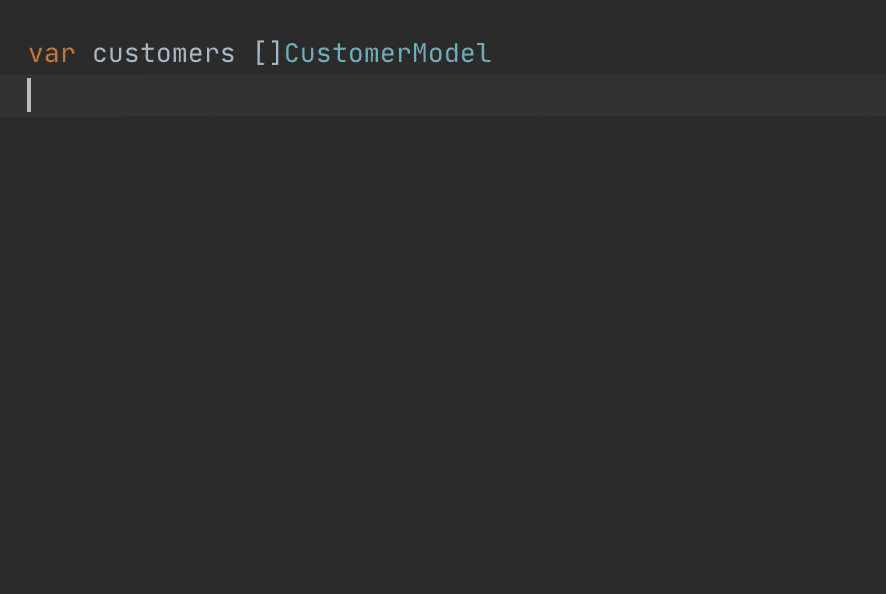sqlingo is a SQL DSL (a.k.a. SQL Builder or ORM) library in Go. It generates code from the database and lets you write SQL queries in an elegant way.
- Auto-generating DSL objects and model structs from the database so you don't need to manually keep things in sync
- SQL DML (SELECT / INSERT / UPDATE / DELETE) with some advanced SQL query syntaxes
- Many common errors could be detected at compile time
- Your can use the features in your editor / IDE, such as autocompleting the fields and queries, or finding the usage of a field or a table
- Context support
- Transaction support
- Interceptor support
- Golang time.Time is supported now, but you can still use the string type by adding
-timeAsStringwhen generating the model
| Database | Status |
|---|---|
| MySQL | stable |
| PostgreSQL | experimental |
| SQLite | experimental |
The first step is to generate code from the database. In order to generate code, sqlingo requires your tables are already created in the database.
$ go install github.com/lqs/sqlingo/sqlingo-gen-mysql@latest
$ mkdir -p generated/sqlingo
$ sqlingo-gen-mysql root:123456@/database_name >generated/sqlingo/database_name.dsl.go
Here's a demonstration of some simple & advanced usage of sqlingo.
package main
import (
"github.com/lqs/sqlingo"
. "./generated/sqlingo"
)
func main() {
db, err := sqlingo.Open("mysql", "root:123456@/database_name")
if err != nil {
panic(err)
}
// a simple query
var customers []*CustomerModel
db.SelectFrom(Customer).
Where(Customer.Id.In(1, 2)).
OrderBy(Customer.Name.Desc()).
FetchAll(&customers)
// query from multiple tables
var customerId int64
var orderId int64
err = db.Select(Customer.Id, Order.Id).
From(Customer, Order).
Where(Customer.Id.Equals(Order.CustomerId), Order.Id.Equals(1)).
FetchFirst(&customerId, &orderId)
// subquery and count
count, err := db.SelectFrom(Order)
Where(Order.CustomerId.In(db.Select(Customer.Id).
From(Customer).
Where(Customer.Name.Equals("Customer One")))).
Count()
// group-by with auto conversion to map
var customerIdToOrderCount map[int64]int64
err = db.Select(Order.CustomerId, f.Count(1)).
From(Order).
GroupBy(Order.CustomerId).
FetchAll(&customerIdToOrderCount)
if err != nil {
println(err)
}
// insert some rows
customer1 := &CustomerModel{name: "Customer One"}
customer2 := &CustomerModel{name: "Customer Two"}
_, err = db.InsertInto(Customer).
Models(customer1, customer2).
Execute()
// insert with on-duplicate-key-update
_, err = db.InsertInto(Customer).
Fields(Customer.Id, Customer.Name).
Values(42, "Universe").
OnDuplicateKeyUpdate().
Set(Customer.Name, Customer.Name.Concat(" 2")).
Execute()
}



